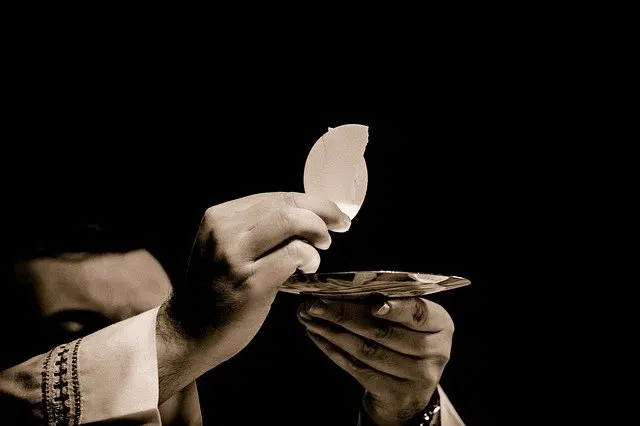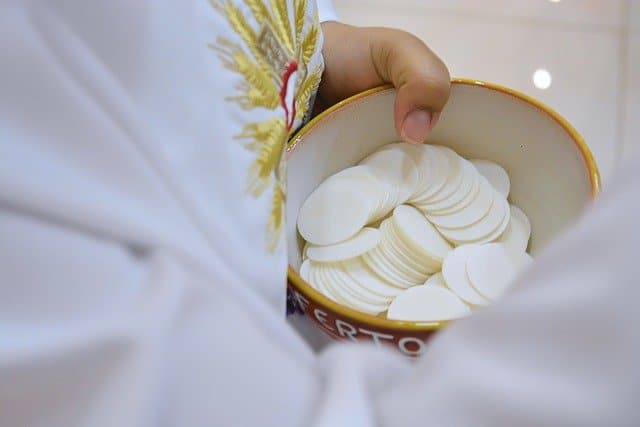
The Eucharist is a Catholic sacrament.
The Greek word eucharistía , which refers to thanksgiving , came into late Latin as eucharistĭa . That is the immediate etymological antecedent of eucharist , a term that is used in different ways in the field of Catholicism .
The first meaning of eucharist mentioned in the dictionary of the Royal Spanish Academy ( RAE ) refers to a sacrament : that is, to a sensitive sign of divine grace that has an impact on the soul of the human being. Specifically, the Eucharist is the sacrament that, through an address by a priest, converts the wine and bread into the blood and body of Jesus Christ .
The Eucharist as a sacrament
It can be said that the Eucharist is a ritual that makes possible the transubstantiation of wine and bread into the blood and body of Jesus . This transformation is recorded without the appearance of these products being modified.
Specifically, the wine used in the Eucharist is an alcoholic beverage made by fermenting grape must, while the bread is a host (a round sheet of bread made without using yeast). The Catholic faith maintains that, by consecrating these products, they are transubstantiated into the blood and flesh of Jesus Christ , respectively.
From a rational perspective, of course, wine and bread remain just that, since a person's words cannot change matter. Therefore, the consideration of the Eucharist depends on the religion one professes.

The host itself is also called the Eucharist.
Origin of transubstantiation
According to the theologians of Catholicism, it was Jesus Christ himself who instituted the sacrament of the Eucharist. The event took place at the so-called Last Supper , when he took bread and wine, gave them to his disciples, telling them that it was his flesh and blood and asked them to continue doing this practice in commemoration of him.
Currently, the Catholic Church maintains that only priests are authorized to carry out the consecration, an action that takes place within the framework of the mass . For transubstantiation to occur, the clergyman asks God to proceed with the transformation and then utters words attributed to Christ . Once, according to faith, the change is made, the faithful are invited to take communion.
All Catholics are entitled to receive the Eucharist, except those who have an unconfessed mortal sin. In this case, the believer is asked to first confess before a priest .
The Eucharist as a host
The term eucharist, in addition to alluding to the aforementioned sacrament, can specifically name the host . As we already indicated above, the eucharist or host is a small piece of bread made without yeast (that is, unleavened bread ).
To prepare the Eucharist, wheat flour is used. Generally, a mixture of flours from different types of wheat is used, which is kneaded with water. Then the dough is spread on plates that are heated for baking and finally the hosts are cut into the characteristic shape. The process, however, may vary since today machines are also used that automate tasks.
It is estimated that the Eucharist arose from matzah , another unleavened bread. Matzah is part of traditional Jewish foods, being consumed on Passover . Its preparation uses oats , barley, rye, spelled and wheat.
